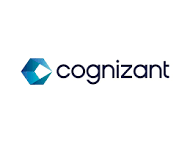Madha Nagar, Kundrathur,Chennai-69.
Mon-Fri 9:00A.M. - 5:00P.M.
The Department of Computer Science and Engineering has been started with the intake of 40 seats in the year of 1998. Then the intake was increased step by step to the number 60, 90,120 through the years 1999, 2000, 2004 respectively. Our department is accredited by National Board of Accreditation in the year of 2004 and again in 2008. The Department of CSE enhanced to become a PG department in the year of 2007 with the intake of 18 full time seats and 2 part time seats.
The Department of Computer Science and Engineering with its cohesive team of faculty members, offers a sound program at the UG as well as the PG levels. The curriculum is a blend of the conventional and the radical. The Department ever takes initiative in providing information beyond the curriculum. Core courses added in the curriculum includes Programming Languages, Computer Architecture, System Software, Networking Technologies and Artificial Intelligence.
1. To enable graduates to pursue research, or have a successful career in academia or
industries associated with Computer Science and Engineering, or as entrepreneurs.
2. To provide students with strong foundational concepts and also advanced techniques and
tools in order to enable them to build solutions or systems of varying complexity.
3. To prepare students to critically analyze existing literature in an area of specialization and
ethically develop innovative and research oriented methodologies to solve the problems
identified.
Engineering Graduates will be able to:
1. Engineering knowledge: Apply the knowledge of mathematics, science, engineering
fundamentals, and an engineering specialization to the solution of complex engineering
problems.
2. Problem analysis: Identify, formulate, review research literature, and analyze complex
engineering problems reaching substantiated conclusions using first principles of
mathematics, natural sciences, and engineering sciences.
3. Design/development of solutions: Design solutions for complex engineering problems and
design system components or processes that meet the specified needs with appropriate
consideration for the public health and safety, and the cultural, societal, and environmental
considerations.
4. Conduct investigations of complex problems: Use research-based knowledge and
research methods including design of experiments, analysis and interpretation of data, and
synthesis of the information to provide valid conclusions.
5. Modern tool usage: Create, select, and apply appropriate techniques, resources, and
modern engineering and IT tools including prediction and modeling to complex engineering
activities with an understanding of the limitations.
6. The engineer and society: Apply reasoning informed by the contextual knowledge to assess
societal, health, safety, legal and cultural issues and the consequent responsibilities relevant
to the professional engineering practice.
7. Environment and sustainability: Understand the impact of the professional engineering
solutions in societal and environmental contexts, and demonstrate the knowledge of, and
need for sustainable development.
8. Ethics: Apply ethical principles and commit to professional ethics and responsibilities and
norms of the engineering practice.
9. Individual and team work: Function effectively as an individual, and as a member or leader
in diverse teams, and in multidisciplinary settings.
10. Communication: Communicate effectively on complex engineering activities with the
engineering community and with society at large, such as, being able to comprehend and write
effective reports and design documentation, make effective presentations, and give and
receive clear instructions.
11. Project management and finance: Demonstrate knowledge and understanding of the
engineering and management principles and apply these to one‘s own work, as a member and
leader in a team, to manage projects and in multidisciplinary environments.
12. Life-long learning: Recognize the need for, and have the preparation and ability to engage in
independent and life-long learning in the broadest context of technological change.
1. To analyze, design and develop computing solutions by applying foundational concepts of
computer science and engineering.
2. To apply software engineering principles and practices for developing quality software for
scientific and business applications.
3. To adapt to emerging information and communication technologies (ICT) to innovate ideas
and solutions to existing/novel problems.
| Semester | Course Code | Course Title | Course Outcome |
|---|---|---|---|
| I | MA5160 | Applied Probability and Statistics | • Basic probability axioms and rules and the moments of discrete and continuous random variables. • Consistency, efficiency and unbiasedness of estimators, method of maximum likelihood estimation and Central Limit Theorem. • Use statistical tests in testing hypotheses on data. • Perform exploratory analysis of multivariate data, such as multivariate normal density, calculating descriptive statistics, testing for multivariate normality. |
| I | CP5151 | Advanced Data Structures and Algorithms | • Design data structures and algorithms to solve computing problems • Design algorithms using graph structure and various string matching algorithms to solve real-life problems • Apply suitable design strategy for problem solving |
| I | CP5152 | Advanced Computer Architecture | • Identify the limitations of ILP. • Discuss the issues related to multiprocessing and suggest solutions • Point out the salient features of different multicore architectures and how they exploit parallelism. • Discuss the various techniques used for optimising the cache performance • Design hierarchal memory system • Point out how data level parallelism is exploited in architectures |
| I | CP5153 | Operating System Internals | • To explain the functionality of a large software system by reading its source. • To revise any algorithm present in a system. • To design a new algorithm to replace an existing one. • To apypropriately modify and use the data structures of the linux kernel for a different software system. |
| I | CP5154 | Advanced Software Engineering | • Understand the advantages of various Software Development Lifecycle Models • Gain knowledge on project management approaches as well as cost and schedule estimation strategies • Perform formal analysis on specifications • Use UML diagrams for analysis and design • Architect and design using architectural styles and design patterns • Understand software testing approaches • Understand the advantages of DevOps practices |
| I | CP5191 | Machine Learning Techniques | • Distinguish between, supervised, unsupervised and semi-supervised learning • Apply the appropriate machine learning strategy for any given problem • Suggest supervised, unsupervised or semi-supervised learning algorithms for any given problem • Design systems that uses the appropriate graph models of machine learning • Modify existing machine learning algorithms to improve classification efficiency |
| I | CP5161 | Data Structures Laboratory | • Design and implement basic and advanced data structures extensively. • Design algorithms using graph structures • Design and develop efficient algorithms with minimum complexity using design techniques. |
| II | CP5201 | Network Design and Technologies | • Identify the components required for designing a network • Design a network at a high-level using different networking technologies • Analyze the various protocols of wireless and cellular networks • Discuss the features of 4G and 5G networks • Experiment with software defined networks |
| II | CP5291 | Security Practices | • Understand the core fundamentals of system security • Apply the security concepts related to networks in wired and wireless scenario • Implement and Manage the security essentials in IT Sector • Able to explain the concepts of Cyber Security and encryption Concepts • Able to attain a through knowledge in the area of Privacy and Storage security and related Issues. |
| II | CP5292 | Internet of Things | • Analyze various protocols for IoT • Develop web services to access/control IoT devices. • Design a portable IoT using Rasperry Pi • Deploy an IoT application and connect to the cloud. • Analyze applications of IoT in real time scenario |
| II | CP5293 | Big Data Analytics | • Understand how to leverage the insights from big data analytics • Analyze data by utilizing various statistical and data mining approaches • Perform analytics on real-time streaming data • Understand the various NoSql alternative database models |
| II | CP5001 | Principles of Programming Languages | • Describe syntax and semantics of programming languages • Explain data, data types, and basic statements of programming languages • Design and implement subprogram constructs, Apply object - oriented, concurrency, pro • and event handling programming constructs • Develop programs in LISP, ML, and Prolog. |
| II | CP5093 | Mobile and Pervasive Computing | • Obtain a through understanding of Basic architecture and concepts of till Third Generation Communication systems. • Explain the latest 4G Telecommunication System Principles. • Incorporate the pervasive concepts. • Implement the HCI in Pervasive environment. • Work on the pervasive concepts in mobile environment. |
| II | CP5261 | Data Analytics Laboratory | • Process big data using Hadoop framework • Build and apply linear and logistic regression models • Perform data analysis with machine learning methods • Perform graphical data analysis |
| III | CP5005 | Software Quality Assurance and Testing | • Perform functional and nonfunctional tests in the life cycle of the software product. • Understand system testing and test execution process. • Identify defect prevention techniques and software quality assurance metrics. • Apply techniques of quality assurance for typical applications. |
| III | CP5074 | Social Network Analysis | • Work on the internals components of the social network • Model and visualize the social network • Mine the behaviour of the users in the social network • Predict the possible next outcome of the social network • Apply social network in real time applications |
| III | CP5097 | Mobile Application Development | • Work on the internals components of the social network • Model and visualize the social network • Mine the behaviour of the users in the social network • Predict the possible next outcome of the social network • Apply social network in real time applications |
| III | CP5311 | Project Work Phase – I | • Demonstrate a through and systematic understanding of project contents. • Understand methodologies and professional way of documentation and communication. • Know the key stages in development of the project. • Extend or use the idea in mini project for major project. |
| IV | CP5411 | Project Work Phase – II | • Demonstrate broad and coherent conceptual understandings of the mathematical, and computer science & engineering principles, theory and practice to solve real-world problems • Analyse complex engineering problems and apply appropriate software technologies to design and develop software components/systems • Acquire and evaluate research regarding new knowledge development within the computer science and engineering discipline and its social, cultural, environmental and legal context • Develop creative solutions to problems and conceive innovative approaches in developing and designing of software systems for the development of society and the engineering profession C410.5 demonstrate a responsible and ethical software professional in a team of Software developers • Prepare high quality engineering documents that can be understandable by both technical and nontechnical people. • Work collaboratively to plan and execute project work or research to advance the scientific basis, technologies or practices within the computer science and engineering discipline. • Realize the need for further knowledge and continuously work on improving own knowledge through learning latest tools and technologies used in the field of IT/ITES |
150
Companies Visited
2000
Offer Issued
50
MOU's
10
International Collaboration













